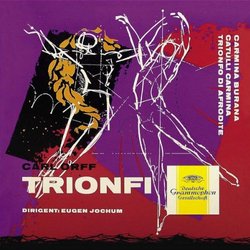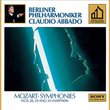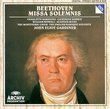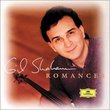Ribald, raw, and wonderful !
Alejandra Vernon | Long Beach, California | 12/26/2004
(5 out of 5 stars)
"Rousing and wild, this is a fabulous recording of Orff's "Carmina Burana". It has a lot of lively fire to it, and has not been tamed in the sudden soft/loud changes, making it one of your neighbor's worst nightmares, second only to Wagner operas. "Carmina Burana" is a favorite of Madison Avenue ad-meisters, and is used on TV to sell everything from movie promos to toilet bowls, so even if you have not heard this piece, there are portions (especially the "O Fortuna") that will sound familiar. This piece is written in "dog-Latin and low-life German", based on 13th century songs found in a Bavarian monastery, and is cetainly one of the most unique pieces of 20th century music.
"Catulli Carmina" is based on the erotic poems of Catullus (84-54 BC), and "Trionfo di Apfrodite" on poems by Catullus, Sappho, and Euripides. Both pieces echo "Carmina Burana" somewhat, except they are a little more civilized, but nonetheless interesting.
Eugen Jochum's interpretations are masterful, with much precision and vigor, and the soloists and chorus excellent. The recordings are from the mid 1950s and are in mono, and considering the age the sound is adequate.
The booklet insert contains a track list, and liner notes on Jochum and the compositions.
Disc One: "Carmina Burana" (1937), soloists: Elfride Trotschel, soprano, Paul Kuen, tenor, Hans Braun, baritone.
Total playing time is 55'39.
Disc Two: "Catulli Carmina" (1943), soloists: Annelies Kupper, soprano, Richard Holm, tenor.
"Trionfo di Afrodite" (1953), soloists: Annelies Kupper, soprano, Elisabeth Lindermeier, soprano, Elizabeth Wiese-Lange, soprano, Richard Holm, tenor, Ratko Delorko, tenor, Kurt Bohme, bass.
Total playing time is 76'38.
"
A driven performance.
Dr Tom | Boston, MA | 06/10/2007
(4 out of 5 stars)
"This is one of the very few recordings that are or were ever available of Carl Orff's complete Trionfi, a trilogy of dramatic cantatas written between 1937 and 1953, of which the first, Carmina Burana, is the most famous.
The inevitable desire to compare this performance of Carmina Burana to the more well-known one Jochum recorded in 1968 (also for DG) reveals the essential character of this entire recording: the solo singers here are not nearly as smooth or varied in vocal color as on the '68, and the Bavarian Radio Symphony is a much grittier-sounding ensemble than the Orchestra of the German Opera, Berlin. (Language aficionados will also enjoy comparing the different pronunciations of the vulgate Latin and Middle High German lyrics between the two.) On the other hand, this earlier performance has more edge and drive. There is, in fact, a rawness and a rhythmic vitality to the performances of all three works here that, to my ear, serve the music brilliantly. If you want slick and clean, this is probably not the recording to get. But if you want a performance with sonic bite and gripping interpretation, this one delivers.
NOTE: All three works are recorded in mono, albeit with rather high fidelity."
Priceless and cult recordings!
Hiram Gomez Pardo | Valencia, Venezuela | 12/06/2007
(5 out of 5 stars)
"Eugene Jochum will be always profoundly associated and better committed with two important and remarkable composers. Anton Brucjkner and Carl Orff.
The very fact to dare to record and accept the overall challenge of undertaking an artistic crusade in order to make Orff a composer of major label is by itself worthy to acknowledge. But as we know the special attention and devotion of Jochum literally surpassed all the praises.
That's why you can not outdo this remarkable trilogy, because of the fact Jochum knew to establish not only a very hard to overcome level of performance, but established a personal landmark and a conceptual unity around the egregious figure of this peculiar composer.
"





